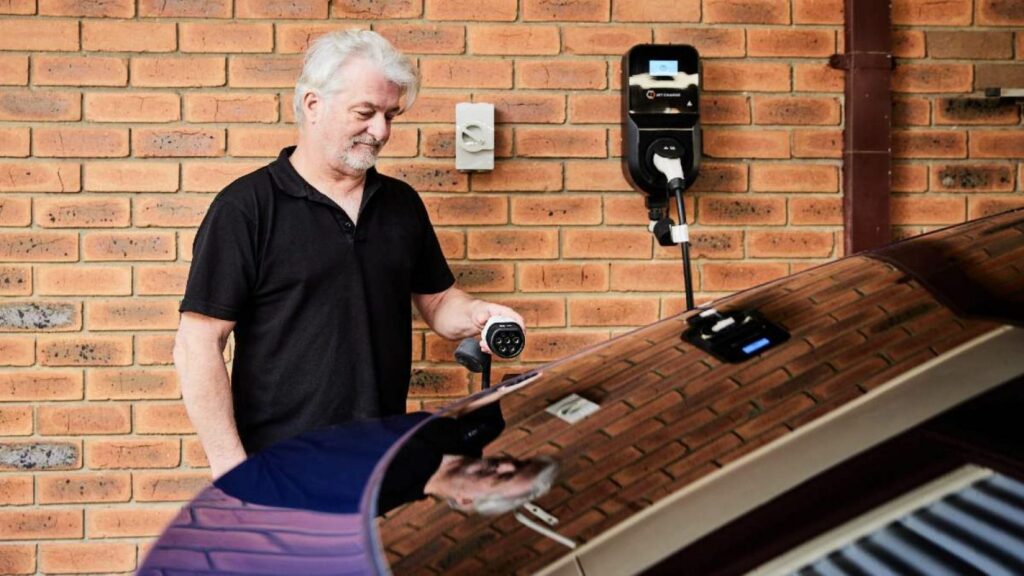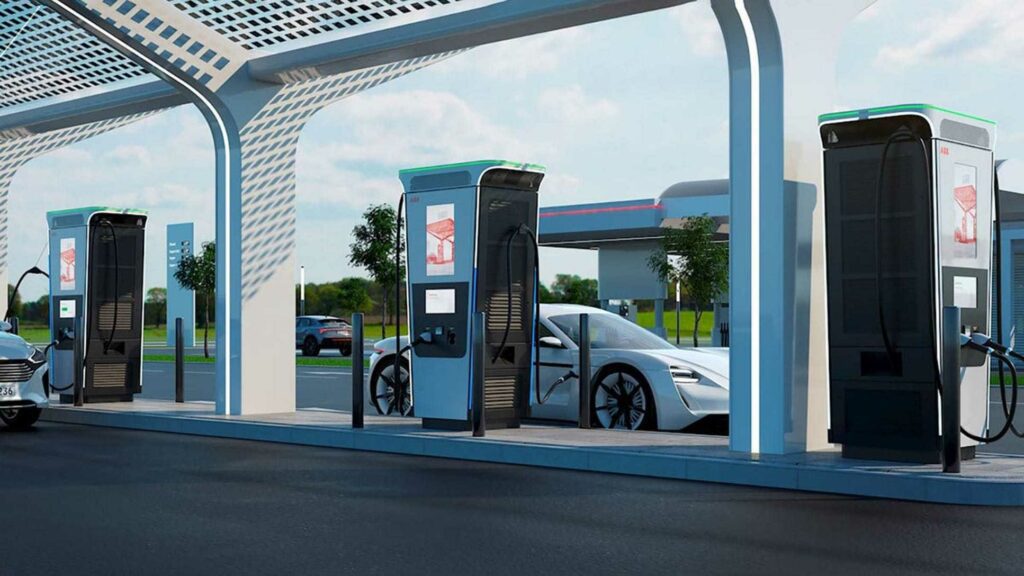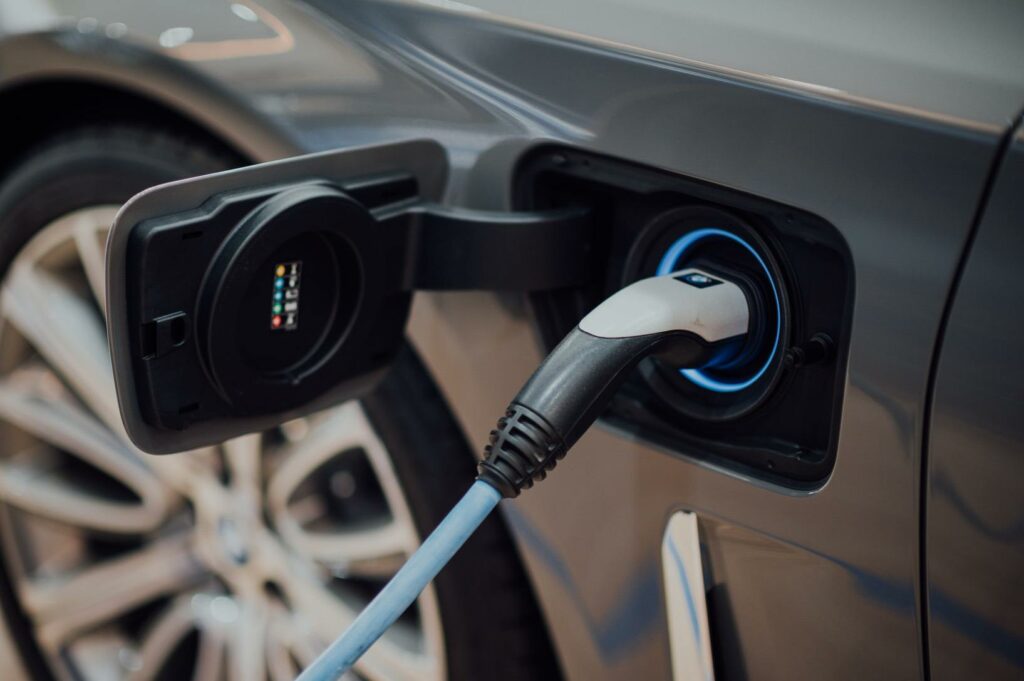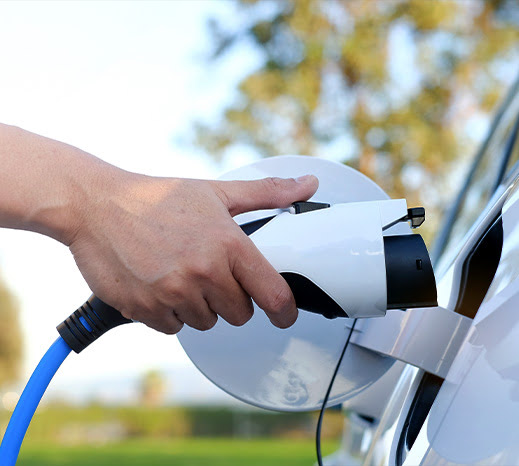There’s a reason so many drivers are switching to electric vehicles. They have lower operating costs, are energy efficient, and help reduce greenhouse gas emissions.
If you’re going to make the switch to an EV or Tesla, having a reliable charger is essential. Being able to recharge your battery at home helps ensure that your vehicle is always operational before you leave your driveway.
Our experts at 4-Star Electric provide essential electric vehicle services like charger installation and maintenance, so we know all about the different kinds available. Below, we’ve broken down the differences between each type of charger so you can find the one that fits your needs.
Types of EV Chargers

Level 1 Chargers
Level 1 chargers are typically best for charging at home overnight. They use a standard 120-volt household outlet and typically come standard with EVs.
However, Level 1 chargers have a few limitations—they take the longest time to charge, and aren’t usually compatible with any EVs other than the ones they were specifically designed for. These might serve you while you’re waiting to have a more effective charger installed, but they’re not typically a great long-term solution for EV owners.
Pros
- Easy to use
- No special installation required
- Low cost (sometimes free with EV purchase)
Cons
- Slower charging speed
- Only provide about 2-5 miles of range per hour of charging
- Often not cross-compatible with other EVs
Ideal For
Short-range daily commuters.

Level 2 Chargers (Our Recommendation)
Level 2 chargers give you a faster charge than Level 1 chargers. They’re also typically compatible with a wider range of EV models, which is why you’ll find them at many public charging locations—but adding one of these chargers to your home is easy as well when you have help from our professionals.
Installing a level 2 EV charger requires help from a qualified electrician, and you might also want to consider upgrading your electrical panel so that your home can handle the extra demand for power. But don’t worry—our team can make this part as quick and easy as possible so that you can enjoy fast charging for your electric vehicle at home.
Pros
- Faster charging with approximately 10-30 miles of range per hour
- Can provide the same power as many public charging stations in the comfort of your home
Cons
- Requires a 240-volt electrical supply (similar to an electric stove or a clothes dryer)
- Requires professional installation
- More expensive than a Level 1 charger
Ideal For
Home charging for daily use on larger commutes or public charging at workplaces, shopping centers, and other locations.

DC Fast Chargers
A DC Fast charger packs a punch, delivering a significant amount of power in the least amount of time. However, these chargers aren’t widely available for at-home use, so you’ll probably only end up using them if you’re driving in an area with significant EV infrastructure.
Pros
- Extremely fast charging
- Provides 60-100 miles of range in 20-30 minutes
- Widely available along some highways
Cons
- Expensive to install
- Not practical for at-home use
- Limited compatibility with older EV models
Ideal For
Long-distance travel or if you need a quick top-off in a hurry.
| Charging Speed | Installation | Cost | Ideal Use | |
| Level 1 | Slow (2-5 miles/hr) | No special setup | Low | Home charging for minimal daily use |
| Level 2 | Moderate (10-30 miles/hr) | Requires 240V outlet | Moderate | Home charging or public stations |
| DC Fast Charger | Fast (60-100 miles/30 min) | Public charging stations | High | Long-distance travel |
Making Your Charging Experience As Convenient As Possible
At the end of the day, the type of charger you use for your electric vehicle is up to you—but with Level 1 chargers offering limited functionality and Level 3 chargers being largely limited to public areas, we strongly recommend that every EV owner install a Level 2 charger at home for quick and convenient charging.
To request a professional EV charger installation or if you need a repair or replacement, book an appointment with 4-Star Electric here. For more details, browse our most frequently asked questions about EV chargers below.

Frequently Asked Questions About EV Chargers
Do I need a home charger for my EV?
If you’re using your EV on a daily or even weekly basis, it’s vital to have a reliable power source at home. It’s the best way to ensure your car can get you from point A to point B and the added investment is well worth your peace of mind.
What are the charging options for my electric vehicle?
As mentioned above, there are 3 categories of charging power: Level 1, Level 2, and DC Fast Chargers. These levels determine how long it will take to charge your EV and what type of installation is required, if any.
- Level 1: uses a standard AC power plug, takes more than 24 hours to fully charge a medium-sized EV battery
- Level 2: requires installation at home or in a public charging station, takes 3-8 hours to fully charge
- DC Fast Charger: requires a DC commercial charger for public charging stations, takes less than an hour to fully charge
Is my EV compatible with any charger?
Most EVs, including Tesla, have adapter cables and connections that allow you to use a variety of charging ports. Some EVs include a Level 1 charger specific to the brand, which usually doesn’t work with other models. Our specialists consider the type of EV you own when recommending and installing a home EV charger so that you can rest assured it will be compatible.
Can I install my own EV charger?
Any installation for a Level 2 (or higher) EV charger should only be done by a certified electrician—for the safety of you and your home, and to protect your electric vehicle.
How much does it cost to install a Level 2 Charger?
Installation costs can vary depending on the location where the charger needs to be installed, the extent of the electrical work required in your home, and the charger’s brand. When you contact us about putting a Level 2 EV charger in your home, we’ll give you a specific quote based on your circumstances.


